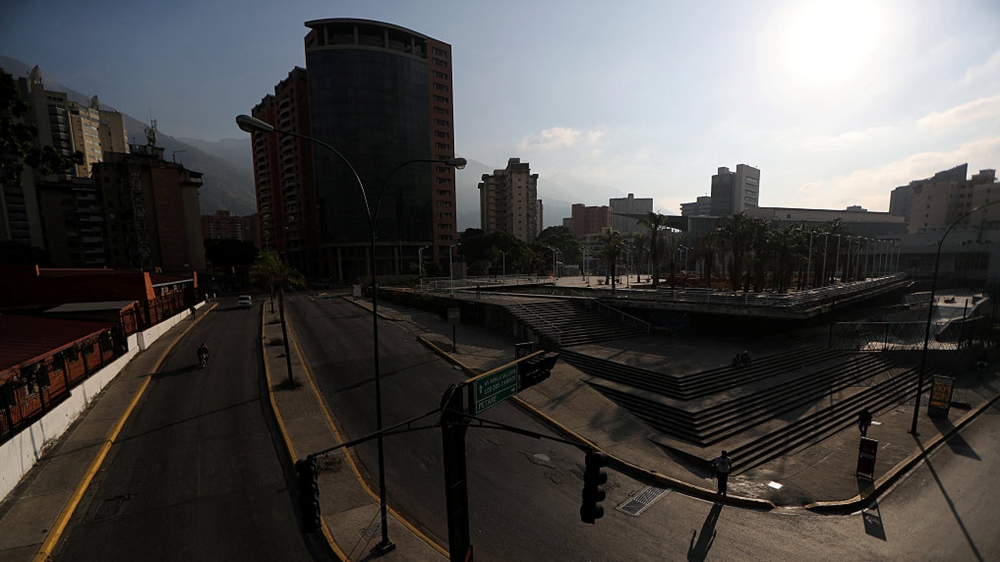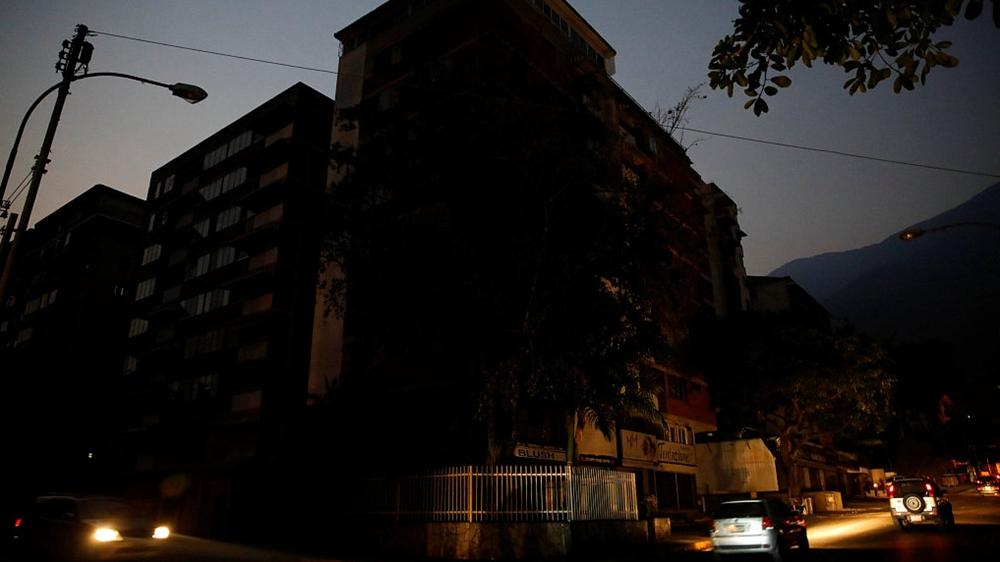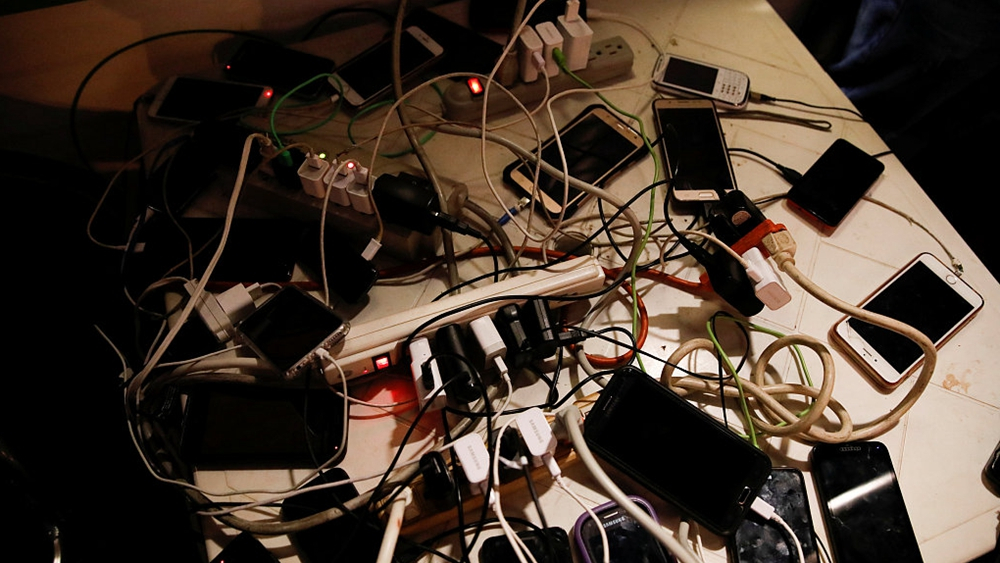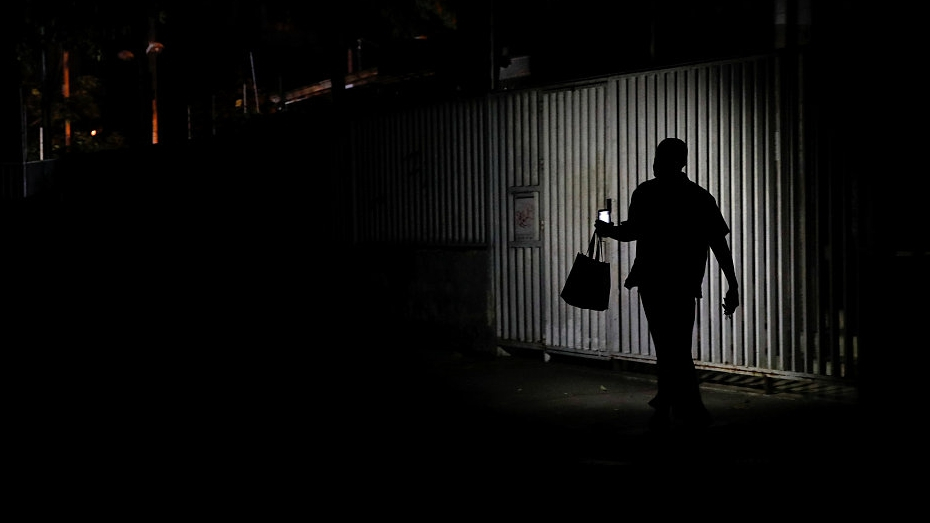
Latin America
12:25, 27-Mar-2019
Second major blackout leaves Venezuelans fearing power cuts will be the norm
CGTN

Venezuela's government has told workers and school children to stay home as the south American country faces a second major blackout this month, which left the streets of its capital Caracas mostly empty.
Public institutions including hospitals, public transport and water services have been affected.
The first of Venezuela's blackouts this month began on March 7. For nearly a week it left millions of people struggling to obtain food and water and hospitals without power to treat the sick. Looting in the western state of Zulia destroyed hundreds of businesses.
President Nicolas Maduro's government, which had blamed sabotage by the U.S. and the opposition for the previous power cut, said an "attack" on its electrical system caused the blackout that first hit on Monday. The outage shuttered businesses, paralyzed the country's main oil export terminal, and stranded commuters.

Cars drive past apartment blocks during a blackout in Caracas, March 26, 2019. /VCG Photo
Cars drive past apartment blocks during a blackout in Caracas, March 26, 2019. /VCG Photo
Intermittent service has long affected Venezuela's largely rural interior, but residents of Caracas fear the increasing blackouts in the capital mean that unreliable power is becoming the new normal for them, too.
"I hope that now with these blackouts in Caracas they can do something, that everyone reacts," said Maria Melendez, a seamstress in the western city of Punto Fijo. She said she has had to replace damaged appliances during previous blackouts.
Power had returned to many parts of Caracas by noon on Tuesday, but businesses remained idle and few pedestrians were walking the streets. Those who went to work because they had not heard that the workday had been canceled were returning to their homes.
"How am I supposed to find out, if there's no power and no Internet?" said dental assistant Yolanda Gonzalez, 50, waiting for the bus near a Caracas plaza. "Power's going to get worse, you'll see."

Cellphones are seen on a table as they are charged by a generator at a public square during a blackout in Caracas, March 26, 2019. /CGTN Photo
Cellphones are seen on a table as they are charged by a generator at a public square during a blackout in Caracas, March 26, 2019. /CGTN Photo
Venezuela's western cities, including Maracaibo and Barquisimeto, as well as the central city of Valencia, also had no power on Tuesday.
The main oil export terminal of Jose and the country's four upgraders that make its crude exportable were paralyzed by the outage, industry workers said.
Information Minister Jorge Rodriguez on Monday said the blackout was the result of an attack on Venezuela's main hydroelectric Guri dam which had affected three major transmission lines.

A resident uses light from a cellphone as he walks along a street during a blackout in Caracas, March 26, 2019. /VCG Photo
A resident uses light from a cellphone as he walks along a street during a blackout in Caracas, March 26, 2019. /VCG Photo
He did not explicitly blame the outage on any individual or group. But he said, "the intention of Venezuela's far right is to attack, generate anxiety and anguish, in order to seize power and steal all our resources."
Electricity experts say the outages are the result of inadequate maintenance and incompetent management of the power grid since the late president Hugo Chavez nationalized the sector in 2007.
"The new normal for the electrical supply is greater vulnerability and less reliability," said Miguel Lara, a former president of the state-run entity responsible for the power system.
Source(s): Reuters

SITEMAP
Copyright © 2018 CGTN. Beijing ICP prepared NO.16065310-3
Copyright © 2018 CGTN. Beijing ICP prepared NO.16065310-3